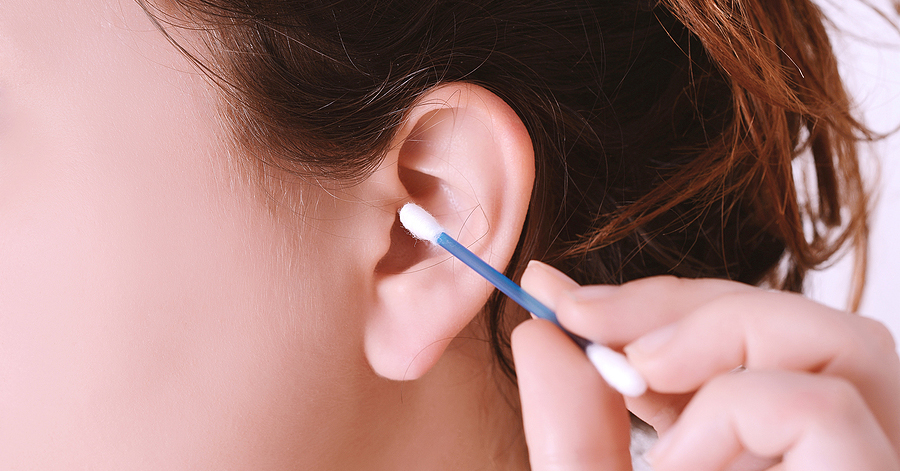It’s quite normal to have a build-up of ear wax. In fact, ear wax (also known as cerumen) protects your skin from water and infection.
The ear canal is self-cleaning—the movement of your jaw as you talk and chew helps to push the old wax out of the ear, where it eventually falls out. Usually, this happens without you even noticing.
However, too much ear wax can cause problems like impacted earwax. Learn more about impacted ear wax on this page: https://drsomaent.com/condition/impacted-earwax/.
Impacted earwax can block your ear canal and cause hearing loss or an earache. If this happens, you may need to have your ear cleaned by a healthcare professional.
There are also some circumstances where having too much or too little ear wax can be a sign of an underlying problem that needs to be investigated further by your GP. You should only try to remove earwax from inside your ears if it’s causing problems such as pain, hearing loss, or itchiness, or if you’re advised to do so by your GP or another healthcare professional.
Is it Possible to Remove Ear Wax at Home?
If you are troubled with ear wax, it is natural to wonder if it’s possible or even advisable to remove ear wax at home. Now, it’s possible to remove earwax at home using ear drops and a soft, wet cloth.
However, it’s important not to put anything else into your ear, such as cotton buds, as this can push the wax further and cause it to become impacted. Excessive or impacted earwax can cause deafness by preventing sound waves from reaching the inner ear.
If you think you have too much earwax, see your GP or practice nurse. They’ll be able to tell if you have impacted earwax by looking into your ear with an auriscope (a thin, flexible telescope).
If you do have impacted earwax, they’ll be able to remove it using special instruments or by irrigating (flushing) your ear with warm water. You should only try to remove earwax at home if your GP has told you it’s OK to do so. And make sure you follow the instructions that come with the ear drops.
When to Seek Professional Help for Ear Wax Removal Instead of doing it Yourself
The professionals that are most likely to be able to help you with your ear wax removal are your GP, an ENT specialist, or an audiologist. Your GP will be able to check if there is any medical reason why you might be producing more ear wax than normal, and they can also refer you to an ENT specialist or audiologist if they think it would be beneficial.
An audiologist is a specialist in ears and hearing, and they will be able to give you advice on the best way to remove your ear wax. They may also be able to carry out the procedure for you.
An ENT specialist is a doctor who specializes in conditions of the ears, nose, and throat. They will be able to advise you on the best way to remove your ear wax and may also be able to carry out the procedure for you. Here are five different instances that may warrant a visit to the doctor for ear wax removal assistance:
- If you have had repeated ear infections: Repeated ear wax build-up and blockages can cause repeated ear infections. In this instance, you should see your GP as they may be able to prescribe antibiotics or other treatments to clear the infection and help to prevent it from happening again.
- If you are experiencing pain: You should see your GP or another healthcare professional if you are experiencing pain in your ear, as this could be a sign of an infection or another underlying condition.
- If you have had a recent operation on your ear: Having a recent operation on your ear could also be the cause of your ear wax build-up. In this instance, you should see your GP or another healthcare professional, like an ENT specialist. They can guide you or even perform the ear wax removal procedure for you.
- If you have a hearing aid: Usually if you have a hearing aid, there is no need to remove the ear wax as it will not affect the functioning of the hearing aid. However, if you are having problems with your hearing aid, the best person to see would be an audiologist, as they will be able to give you advice on the best way to clean your hearing aid and remove any ear wax build-up.
If you are unsure whether or not you need to see a healthcare professional for your ear wax removal, you can always give them a call, and they will be able to advise you.
How to Remove Ear Wax at Home (If Your Doctor Says it is Safe for You to Do So)
If your doctor says it is safe for you to remove your ear wax at home, there are a few different methods that you can try.
- Ear drops: There are a number of ear drop solutions that you can buy from your local pharmacy that can help to soften and remove ear wax. These usually need to be used for a few days before seeing any results. It is important to follow the instructions that come with the ear drops and not to use them for longer than recommended, as this could damage your hearing.
- Olive oil: Putting a few drops of olive oil into your ear can also help to soften the ear wax so that it is easier to remove. Put a few drops of olive oil into your ear before going to bed, and then in the morning, use a cotton bud to gently remove the softened ear wax.
- Hydrogen peroxide: Hydrogen peroxide can also be used to remove ear wax. Put a few drops of hydrogen peroxide into your ear and wait for it to fizz. Once it has stopped fizzing, use a cotton bud to gently remove the ear wax.
- Water: You can also try using water to flush out your ear wax. Fill a syringe with warm water and then put the syringe into your ear. Squeeze the syringe, so the water goes into your ear, and then let it drain. You may need to do this a few times before all of the ear wax has been flushed out.
Once you have removed the ear wax, you can then use a cotton bud to gently clean the inside of your ear.
Wrapping Up
It is important to note that you should only attempt to remove your ear wax at home if your doctor says it is safe for you to do so. You should also never put anything into your ear that is sharper than a cotton bud, as this could damage your ear.
Our team of ENT specialists is experienced in performing ear wax removal procedures and can do so safely and effectively. If you are concerned about your ear wax build-up, we recommend you make an appointment to see one of our ENT specialists for a consultation. Call or WhatsApp: +65 9856 8391.
Visit us at:
Sinus & Allergy Specialist Centre – Ear, Head and Neck Surgery
#05-01, Parkway East Specialist Hospital
321 Joo Chiat Place,
Singapore 427990
https://drsomaent.com/
+65 9856 8391









